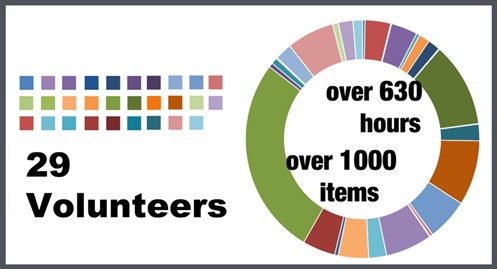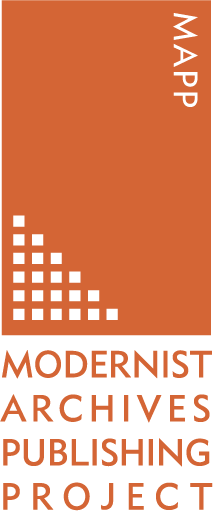Beginning my journey as a volunteer for the MAPP Transcription Project in 2022, I transitioned to the role of Trainee Archive Assistant at the University of Reading last September. Once only focusing on capturing and transcribing every detail from the original sources, I now not only transcribe, but also proofread transcriptions, adding new content to the website, coordinating with volunteers and more. In the previous phase of the project, our dedicated volunteers contributed over 1000 transcriptions (see Figure 1 for statistics on their contributions and The Team for the full list of volunteer transcribers). Since not all transcriptions were available online when I first started, I have since focused primarily on adding these transcriptions to the website. Simultaneously, Brian, our star volunteer has been invaluable in assisting with proofreading. Together, we have achieved a remarkable milestone, with more than 950 transcriptions currently on the site.
Two years ago, I perceived MAPP, especially the transcription project, as one of the ongoing volunteering initiatives at the University of Reading, engaging local community members. However, upon becoming the Trainee Archive Assistant, I now have a full picture of this international scholarly project. One of my major takeaways is understanding how crucial scholarly intervention was in the curation of this critical digital archive in order to recover marginalised female voices in publishing history (Wilson, Battershill, Clarkson, Hannah, Nokhrin & Willson 2022). As a volunteer transcribing letters, I was aware that initials of Hogarth Press employees/typists appearing on the letters should be expanded into full names in the endnotes, for example Aline Burch in MS 2750/510/13, yet I did not fully grasp the significance of such practice. It was not until I assumed my current role that its profound impact became apparent to me. These once overlooked names are now not only searchable, but their contributions are more visible to website and catalogue users.
Furthermore, by working on this project, I have had a chance to reflect on colonialism through a modernist lens. Previously, while my interests lay in 19th-century colonial history, I seldom explored the connections between literature and anti-colonialism in the early 20th century. One of the evident legacies is the anti-colonial works published by The Hogarth Press, such as Kenya by Norman Leys and The Case for West-Indian Self Government by C. L. R. James, which played a pivotal role in disseminating the idea. However, when placing the authors, especially the Bloomsbury group, and their cultural productions within an imperial context, it is clear that their values to some extent reflected imperial ideologies. This complexity suggests that the relationship between these intellectuals and the British Empire is more intricate than it appears, necessitating a nuanced understanding of their engagements with anti-colonialism (Sarker 2018). And I am only starting to get a grip of such fascinating discussions.
References:
Wilson, Nicola, Claire Battershill, Helena Clarkson, Matthew N. Hannah, Illya Nokhrin, and Elizabeth Willson Gordon. 2022. “Digital Critical Archives Copyright and Feminist Praxis.” Archival Science: International Journal on Recorded Information 22: 295–317.
Sarker, Sonita. 2018. “Bloomsbury and Empire.” In The Handbook to the Bloomsbury Group, edited by Derek Ryan and Stephen Ross. London: Bloomsbury Publishing.
Graph 1. Pie chart of our volunteer transcribers’ contributions, created by former Digital archivist Helena Clarkson.




